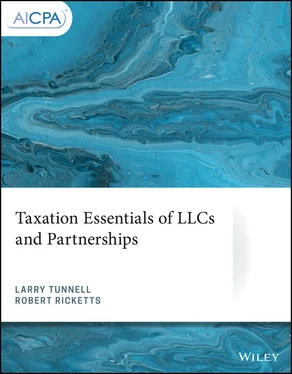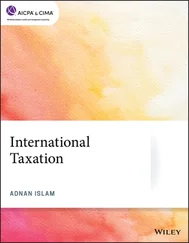Therefore, the partner capital accounts play a crucial role in determining the consequences for the partners of partnership activities. Because a partner's share of partnership income is credited to his or her capital account, therefore giving him or her a right to withdrawal of a like amount, he or she is taxable on that income even if it is not currently distributed by the partnership. Any income not withdrawn remains in the partner's capital account, and constitutes an additional investment by the partner in the partnership. The partner's basis in the partnership interest is increased to reflect this additional investment. Finally, because the partner retains the right to withdraw his or her capital, including reinvested earnings, from the partnership in the future, his or her interest in partnership assets, as reflected on the book balance sheet, is also increased by any portion of that share of earnings which is not withdrawn (that is, received as a distribution) in the current year.
1 Dale and Roy formed a partnership early this year. Dale contributed $150,000 cash in exchange for a 50% interest in the partnership. Roy contributed land with a tax basis of $90,000, and a fair market value of $150,000 in exchange for the remaining 50% interest in the partnership. What will be the balance in Roy's book capital account in the partnership's balance sheet?$150,000.$90,000.$60,000.$75,000.
Self-employment tax issues
Generally speaking, a significant disadvantage of the partnership form relative to the S corporation form is the self-employment tax. A shareholder's share of pass-through income from an S corporation is generally not treated as earned income, 13 and therefore does not trigger self-employment (SE) taxes; in contrast, a general partner's share of ordinary income (but not capital gains, interest income, and the like) from a partnership is subject to self-employment tax.
Different rules apply to limited partners. Because limited partners are not allowed to participate in management, their shares of partnership income are not classified as earned income and therefore do not trigger self-employment tax. 14 This provision does not apply to guaranteed payments received in exchange for services rendered to or on behalf of the partnership.
For this reason, it is not uncommon for some general partners to structure a portion of their interest in a limited partnership as a limited partnership interest. For example, a partner may own a 1% general partnership interest and a 9% limited partnership interest. This structure does not protect the general partner from personal liability for partnership losses, but does result in the portion of partnership income attributable to the partner's limited partnership interest to be classified as unearned income, not subject to the self-employment tax. As long as the partner is fairly compensated for any services (for example, management services) provided in his or her capacity as a general partner, the IRS should not challenge this arrangement.
Although it is clear how these provisions apply to general and limited partnerships, it is much less clear how they should be applied to limited liability companies. The proposed regulations under Section 1402 attempt to provide some guidance on this question. As a general rule, the proposed regulations treat an investor in an LLC (or any other type of entity) as a limited partner unless such investor
has personal liability for the debts of or claims against the LLC by reason of being a partner or member;
has authority under state law to contract on behalf of the LLC;
or participates in the LLC's trade or business for more than 500 hours during the entity's taxable year. 15
The proposed regulations establish two exceptions to these rules. First, no individual who is a service partner in a service partnership (including an LLC electing to be taxed as a partnership) can be classified as a limited partner. Therefore, members of LLCs engaged in the practice of health, law, engineering, architecture, accounting, actuarial science, or consulting will generally not be treated as limited partners (and therefore will be subject to SE taxes) unless they provide no services to or on behalf of the LLC. 16
Second, the proposed regulations provide that a member of an LLC can be treated as a limited partner even if he or she participates in the LLC's trade or business for more than 500 hours if
the member would be treated as a limited partner if not for his or her participation in the LLC's trade or business for more than 500 hours;
other members who are treated as limited partners own a substantial continuing interest in the LLC; and
such other members have rights and obligations with respect to their membership interests in the LLC that are identical to those of the member participating in the LLC's activity for more than 500 hours during the taxable year. 17
Note that Proposed Reg. Sec. 1.1402(a)-2(h) have expired and to date the IRS has not issued new regulations regarding the classification of investors in LLCs. However, the expired regulations do give us some guidance regarding the IRS opinion in these matters.
 Example 1-21
Example 1-21
A, B, and C are members of an LLC that has elected to be taxed as a partnership for federal income tax purposes. The LLC is not a service partnership as defined in the proposed regulations under Section 1402. A and B each own one unit in the LLC; C owns two units. Therefore, A and B are each entitled to share in 25% of the company's profits and losses, but C receives 50%. In addition, B and C perform services on behalf of the LLC. B worked 600 hours in the current year, but C worked 1,000 hours. C, as the managing “partner” of the LLC, has the authority under state law to contract on the LLC's behalf. B and C each received guaranteed payments from the LLC as compensation for services rendered. None of the members has personal liability for entity debts or claims against the entity.
The proposed regulations provide that A, who is not authorized to contract on behalf of the LLC, does not provide services to or on behalf of the LLC, and has no personal responsibility for LLC debts, will be treated as a limited partner. Therefore, his or her distributive share of LLC ordinary income will be excluded from his or her net earnings from self-employment.
Likewise, B will also be classified as a limited partner. Although B performed more than 500 hours of service for the LLC, he or she is not authorized to contract on the LLC's behalf and is not personally liable for LLC debts. Moreover, his or her rights and obligations as a member of the LLC are identical to A's. Because A's interest in the LLC is substantial, and A is treated as a limited partner, B will also be treated as a limited partner. His or her distributive share of LLC income will not be subject to SE tax, although the amounts received as guaranteed payments for services rendered to the LLC will be subject to SE tax.
Unlike A and B, C will not be treated as a limited partner, because he or she has the authority to contract on behalf of the LLC. Accordingly, both his or her distributive share of LLC ordinary income and any amounts received as guaranteed payments for services rendered to the LLC will be classified as earned income. 18
These rules appear to be consistent with proposed regulations under IRC Section 469 issued in November 2012. Proposed Reg. Sec. 1.469-5(e)(3)(i) change the rules for determining whether an LLC member should be treated as a limited partner for purposes of the passive loss limitations. Unlike the existing regulations under IRC Section 469, which base the determination of limited partnership status on the issue of whether the partner or LLC member enjoys limited liability for the entity's activities, the proposed regulations base this determination instead on the LLC member's right to “manage” the entity. 19 Presumably, an LLC member should be classified consistently regardless of the statute under which his or her status is being evaluated. Therefore, a member of an LLC who does not have the right to participate in management is properly classified as a limited partner whose allocable share of LLC losses will be subject to the passive loss limitations of IRC Section 469, but whose allocable share of profits will not be subject to self-employment taxes. In contrast, if the member does have the right to participate in management (whether or not exercised), his or her allocable share of LLC losses will not be subject to the passive loss limitations and any allocable share of LLC profits will be subject to SE taxes.
Читать дальше

 Example 1-21
Example 1-21










